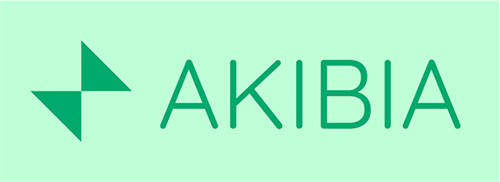[ad_1]
The cryptocurrency industry has fallen under greater scrutiny in recent months, with businesses and regulators paying closer attention to the expanding digital asset space.
While still very nascent, “the industry is now mature enough that … nearly everyone understands the power of that potential,” Jeremy Fox-Geen, CFO for crypto platform Circle Internet Financial, said in a recent interview.
“The way I see it, we’re at the end of a retail-driven, speculative phase, and we’re at the dawn of a utility phase,” Fox-Geen said in an interview. Circle, a cryptocurrency platform which issues the digital asset or “stablecoin” USDC, is keeping its own focus on ensuring it is well-positioned for this coming utility phase, he said.
Unlike other companies, Circle is looking to grow its headcount in the next year, Fox-Geen said, with the Wall Street Journal reporting it is aiming to do so by 25%. But at the same time, the company is looking to ensure it is prioritizing its future investments as it faces an increasingly volatile macroeconomic and regulatory environment.
“The fact that there has been turmoil in the market does not in any way diminish the incredible opportunity that we have,” Fox-Geen said. “As many other companies become challenged, we do have an eye towards, what is the opportunity here for us? We’re going to continue to build the way we’re building.”
Keeping up a robust regulatory dialogue
Preparing for crypto’s oncoming “utility phase” can be tricky as the industry falls under intensifying regulatory fire, which in recent months has centered on the question of whether certain digital assets can be considered securities.
Paxos Trust Co. — which issues the Binance-backed stablecoin BUSD — received scrutiny from two regulators in February, with the New York State Department of Financial Services directing Paxos to end its relationship with Binance due to “several unresolved issues.”
Paxos, which is now in “constructive” talks with the regulator, acknowledged receiving a Wells notice from the Securities and Exchange Commission which stated that it is “considering recommending an action alleging that BUSD is a security,” according to Paxos’ statement.
Bloomberg reported this month that Circle — which is also regulated by the NYDFS — issued a complaint to the regulator last year regarding Binance’s mismanagement of its own token reserves.
Fox-Geen declined to comment on the report of the complaint, but said Circle has “a broad dialogue” with its regulators.
“We have a very, very robust enterprise risk management and compliance program and robust dialogue with regulators — including those who do not yet regulate us,” he said.
The company’s embrace of regulation has been a position it has held since its founding 10 years ago, he said
“We asked for the digital asset industry to be regulated before it was regulated,” Fox-Geen said, noting the company’s CEO, Jeremy Allaire, has attended multiple government hearings pushing for regulation of the industry. “We have always taken the view that constructive relationships with regulators are critical and the events of the last year have demonstrated exactly why that is true.”
As a “stablecoin” issuer, Circle has also faced a spotlight as the debate regarding which digital assets are securities, and which are not, heats up. Dante Disparte, Circle’s chief strategy officer and head of global policy, recently tweeted on Feb. 14 that the company had not received a Wells notice itself in response to rumors on the social media site, which a spokesperson confirmed is the company’s official statement.
There is, Fox-Geen said, no firm definition of a stablecoin; “It’s a word that people coined that has been used to refer to many digital assets, including those that have no stable characteristics whatsoever,” he said.
USDC, commonly referred to as a stablecoin, is a digital asset that is backed one-for-one with the U.S. dollar, Fox-Geen said, noting the coin is “not a security.”
USDC is one of the only assets that grew in 2022, Allaire said Friday in an interview with CNBC, something which potentially shows that “a digital dollar that works on top of these blockchain networks has real utility and real value,” he said.
Creating transparency, trust
One of the ways Circle is preparing to take advantage of crypto’s future is by transitioning to a public entity, which has been a goal for a number of years, Fox-Geen said.
In December, the company mutually terminated its merger with special-purpose acquisition company Concord Acquisition Corp., a deal previously valued at $9 billion. The transaction was terminated due to the deal timing out and not any other factors, Fox-Geen said.
Circle is no longer looking to go public via a SPAC, Fox-Geen said. As a “rapidly growing, profitable company” it is examining other ways of doing so such as an initial public offering or direct listing, he said. Going public could also provide benefits to the company as it looks to build out trust and transparency within the cryptocurrency space, he said.
“We want to hold ourselves to the highest standards of transparency so that people who are looking to build upon our infrastructure in this industry can rest assured they’re dealing with people who they can trust,” Fox-Geen said. “So the additional scrutiny of being a public company, we think is very beneficial for us.”
[ad_2]
Source link

